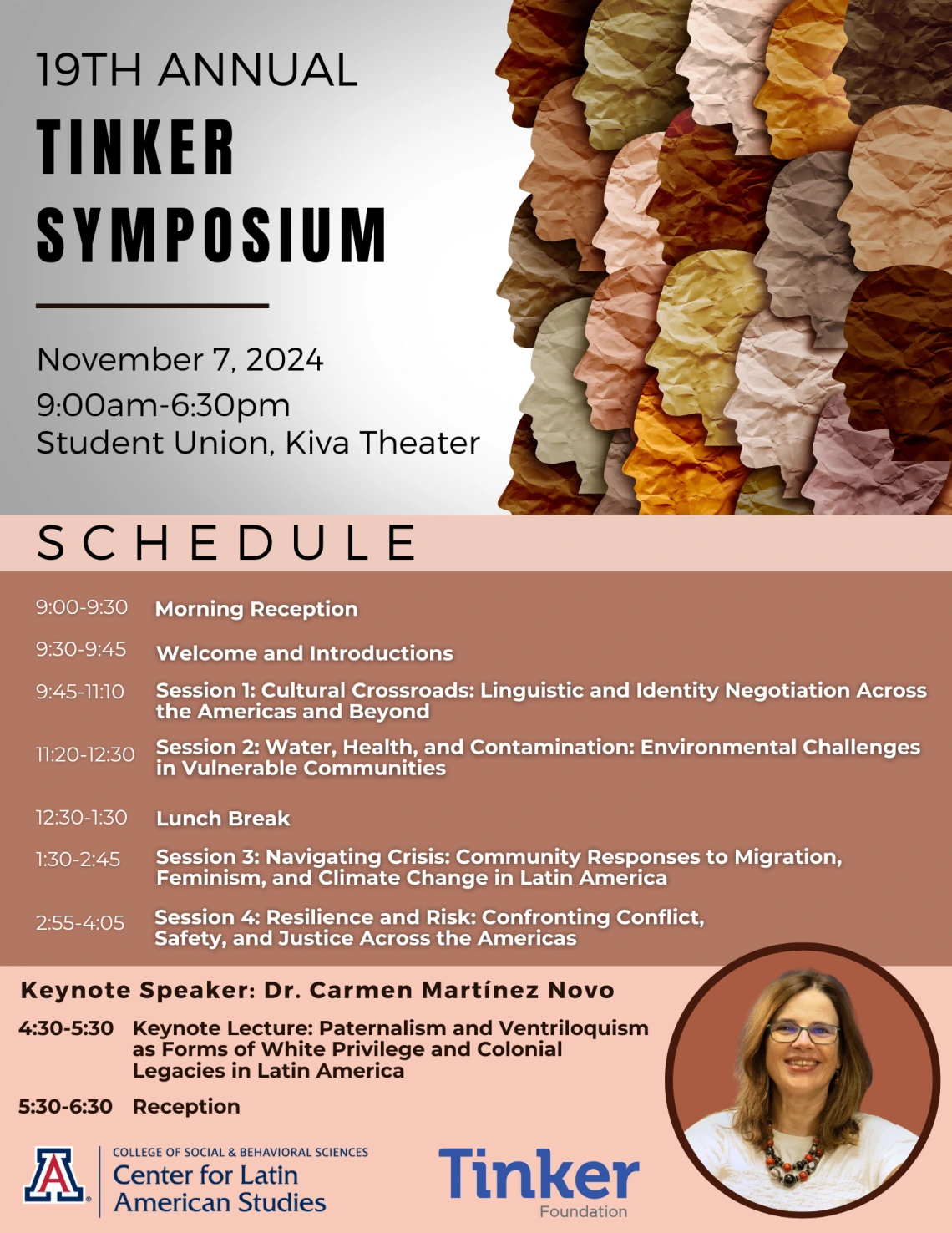
When
Join us at our 19th Annual Tinker Symposium and learn about the summer field research of funded graduate students on Thursday, November 7th at the Student Union, Kiva Theater. See full program here.
Schedule:
- 9:00am-9:30am - Morning Reception
- 9:30am-9:45am - Welcome & Introductions
- 9:45am -11:10am - Session 1 | Cultural Crossroads: Linguistic and Identity Negotiation Across the Americas and Beyond
- 11:20am-12:30pm - Session 2 | Water, Health, and Contamination: Environmental Challenges in Vulnerable Communities
- 12:30pm-1:30 pm - Lunch Break
- 1:30pm-2:45pm - Session 3 | Navigating Crisis: Community Responses to Migration, Feminism, and Climate Change in Latin America
- 2:55pm-4:05pm - Session 4 | Resilience and Risk: Confronting Conflict, Safety, and Justice Across the Americas
- 4:05pm-4:30 pm - Break
Keynote Speaker: Dr. Carmen Martínez Novo
4:30pm-5:30pm - Keynote Lecture: Paternalism and Ventriloquism as Forms of White Privilege and Colonial Legacies in Latin America
5:30pm-6:30pm - Reception
"Paternalism and Ventriloquism as Forms of White Privilege and Colonial Legacies in Latin America"
This talk discusses the privilege associated with self-identifying and being identified as white in Latin America. “Whiteness” is understood broadly as an entrenched global system and considered in the intersections between race (white or light mestizo) and class (upper and middle class). The talk argues that to be “white” in Latin America is not only about skin color or phenotype, but also a way of acting in the world that provides advantages to some groups over others. More specifically, it explores the privilege of claiming to protect others and speaking for them through a discussion of the concepts of paternalism, maternalism and ventriloquism. Maternalism is highlighted given the important role played by upper-class, white-mestizo women in building inter-ethnic and inter-class unequal relationships. It is claimed that similarly to mestizaje, to speak for others and become their advocate is a false promise of inclusion. The behavior of dominant groups is analyzed as a legacy of colonial social relations congealed in legal figures. These legal concepts have lingered in Latin American legislation and continue to shape contemporary inter-ethnic relations. Finally, the talk shows how historical patterns of paternalist and maternalist domination come to constitute a coherent system for the management of racialized populations.

